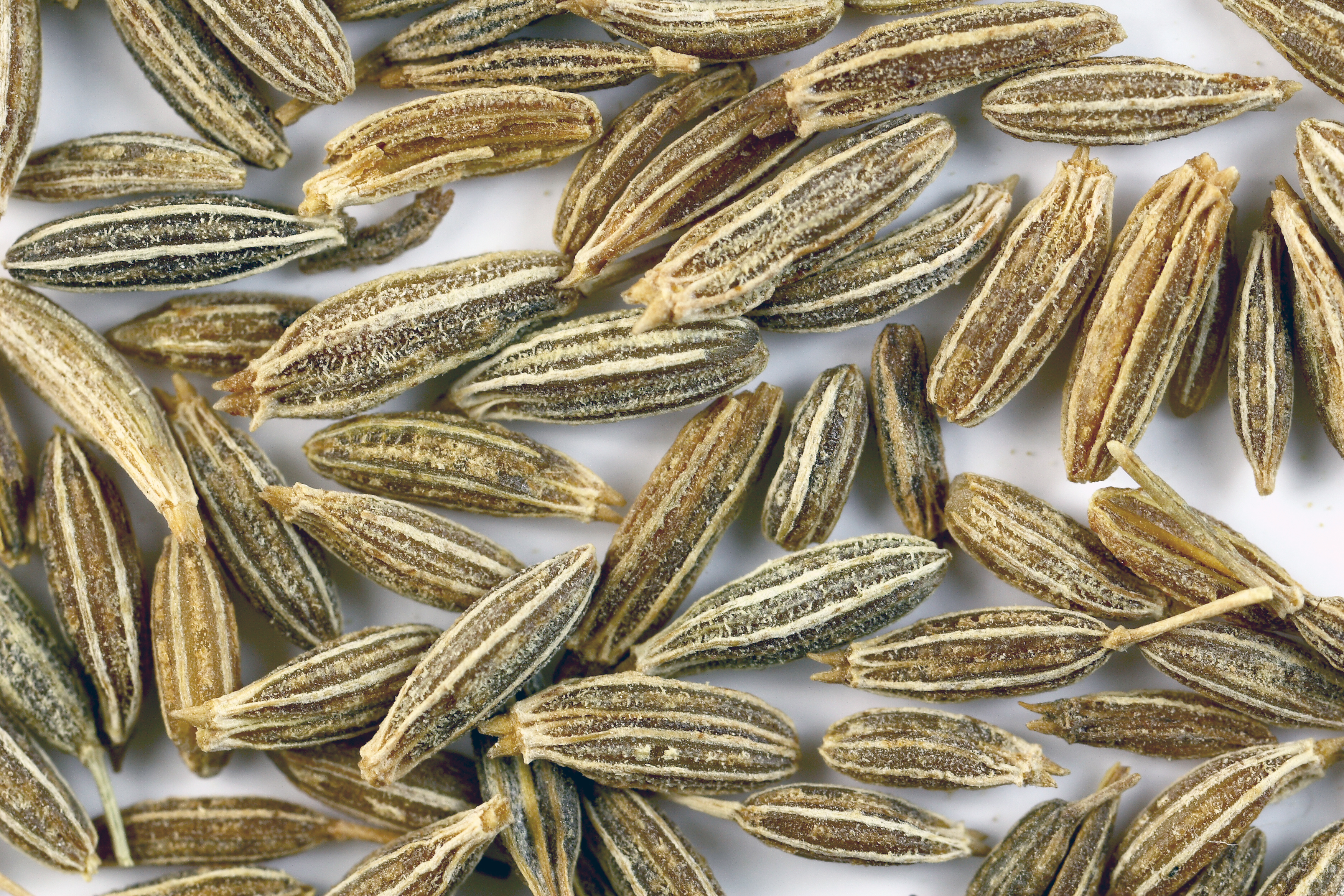|
P-Cymene
''p''-Cymene is a naturally occurring aromatic organic compound. It is classified as an alkylbenzene related to a monoterpene. Its structure consists of a benzene ring ''para''-substituted with a methyl group and an isopropyl group. ''p''-Cymene is insoluble in water, but miscible with organic solvents. Isomers and production In addition to ''p''-cymene, two less common geometric isomers are ''o''-cymene, in which the alkyl groups are ''ortho''-substituted, and ''m''-cymene, in which they are ''meta''-substituted. ''p''-Cymene is the only natural isomer, as expected from the terpene rule. All three isomers form the group of cymenes. Cymene is also produced by alkylation of toluene with propylene. Related compounds It is a constituent of a number of essential oils, most commonly the oil of cumin and thyme. Significant amounts are formed in sulfite pulping process from the wood terpenes. ''p''-Cymene is a common ligand for ruthenium. The parent compound is 2">''η'' ... [...More Info...] [...Related Items...] OR: [Wikipedia] [Google] [Baidu] |
Cymenes
The cymenes (methylcumenes, isopropyltoluenes) constitute a group of substances of aromatic hydrocarbons, which structure consists of a benzene ring with an isopropyl group (−CH(CH3)2), and a methyl group (−CH3) as a substituent. Through their different arrangement, they form three structural isomers with the molecular formula C10H14. They also belong to the group of C4-benzenes. The best-known isomer is the ''p''-cymene, it occurs in nature and is one of the terpenes Terpenes () are a class of natural products consisting of compounds with the formula (C5H8)n for n > 1. Comprising more than 30,000 compounds, these unsaturated hydrocarbons are produced predominantly by plants, particularly conifers. Terpenes a .... References Alkylbenzenes C4-Benzenes Monoterpenes Isopropyl compounds {{Organic-chem-stub ... [...More Info...] [...Related Items...] OR: [Wikipedia] [Google] [Baidu] |
Cumin
Cumin ( or , or Article title ) (''Cuminum cyminum'') is a in the , native to the . Its seeds – each one contained within a fruit, which is dried – are used in the cuisines of many c ... [...More Info...] [...Related Items...] OR: [Wikipedia] [Google] [Baidu] |
Alkylbenzene
The alkylbenzenes are derivatives of benzene, in which one or more hydrogen atoms are replaced by alkyl groups of different sizes. They are a subset of the aromatic hydrocarbons. The simplest member is toluene, in which a hydrogen atom of the benzene was replaced by a methyl group In organic chemistry, a methyl group is an alkyl derived from methane, containing one carbon atom bonded to three hydrogen atoms, having chemical formula . In formulas, the group is often abbreviated as Me. This hydrocarbon group occurs in ma .... Literature * Allinger, Cava, de Jongh, Johnson, Lebel, Stevens: ''Organische Chemie'', 1. Auflage, Walter de Gruyter, Berlin 1980, , pp. 367–368, 560–562. * Streitwieser / Heathcock: ''Organische Chemie'', 1. Auflage, Verlag Chemie, Weinheim 1980, , pp. 1051, 1073–1080. * Beyer / Walter: ''Lehrbuch der Organischen Chemie'', 19. Auflage, S. Hirzel Verlag, Stuttgart 1981, , pp. 442–444. * Morrison / Boyd: ''Lehrbuch der Organischen ... [...More Info...] [...Related Items...] OR: [Wikipedia] [Google] [Baidu] |
Royal Society Of Chemistry
The Royal Society of Chemistry (RSC) is a learned society (professional association) in the United Kingdom with the goal of "advancing the chemistry, chemical sciences". It was formed in 1980 from the amalgamation of the Chemical Society, the Royal Institute of Chemistry, the Faraday Society, and the Society for Analytical Chemistry with a new Royal Charter and the dual role of learned society and professional body. At its inception, the Society had a combined membership of 34,000 in the UK and a further 8,000 abroad. The headquarters of the Society are at Burlington House, Piccadilly, London. It also has offices in Thomas Graham House in Cambridge (named after Thomas Graham (chemist), Thomas Graham, the first president of the Chemical Society) where ''RSC Publishing'' is based. The Society has offices in the United States, on the campuses of The University of Pennsylvania and Drexel University, at the University City Science Center in Philadelphia, Pennsylvania, in both Beijing a ... [...More Info...] [...Related Items...] OR: [Wikipedia] [Google] [Baidu] |
Flavors
Flavor or flavour is either the sensory perception of taste or smell, or a flavoring in food that produces such perception. Flavor or flavour may also refer to: Science * Flavors (programming language), an early object-oriented extension to Lisp * Flavour (particle physics), a quantum number of elementary particles related to their weak interactions *Flavor of Linux, another term for any particular Linux distribution; by extension, "flavor" can be applied to any program or other computer code that exists in more than one current variant at the same time Film and TV * ''Flavors'' (film), romantic comedy concerning Asian-Indian immigrants in America Music Artists and bands * Flavor Flav (born 1959), former rap/hip-hop promoter and current reality television actor * Flavour N'abania (born 1983), Nigerian singer-songwriter * Flavor (band), minor hit with "Sally Had A Party" in 1968 Albums * ''Flavours'' (album), 1975 album by The Guess Who * ''Flavors'' (album), by American R& ... [...More Info...] [...Related Items...] OR: [Wikipedia] [Google] [Baidu] |
P-Menthane ''p''-Menthane is a hydrocarbon with the formula (CH3)2CHC6H10CH3. It is the product of the hydrogenation or hydrogenolysis of various terpenoids, including ''p''-cymene, terpinolenes, phellandrene, and limonene. It is a colorless liquid with a fragrant fennel-like odor. It occurs naturally, especially in exudates of ''Eucalyptus'' fruits. The compound is generally encountered as a mixture of the ''cis'' and ''trans'' isomers, which have very similar properties. It is mainly used as a precursor to its hydroperoxide, which is used to initiate polymerization In polymer chemistry, polymerization (American English), or polymerisation (British English), is a process of reacting monomer molecules together in a chemical reaction to form polymer chains or three-dimensional networks. There are many fo ...s. References {{DEFAULTSORT:Menthane, p- Hydrocarbons Perfume ingredients Cyclohexanes Isopropyl compounds ... [...More Info...] [...Related Items...] |

